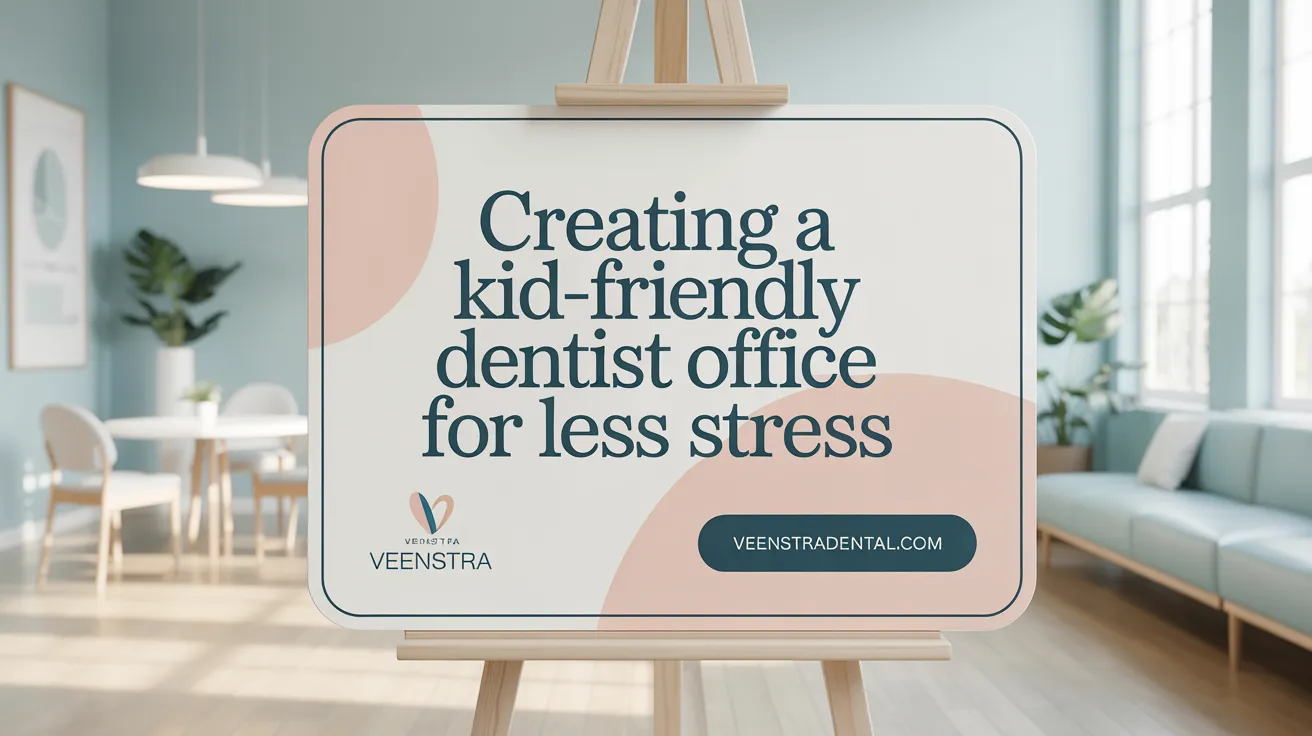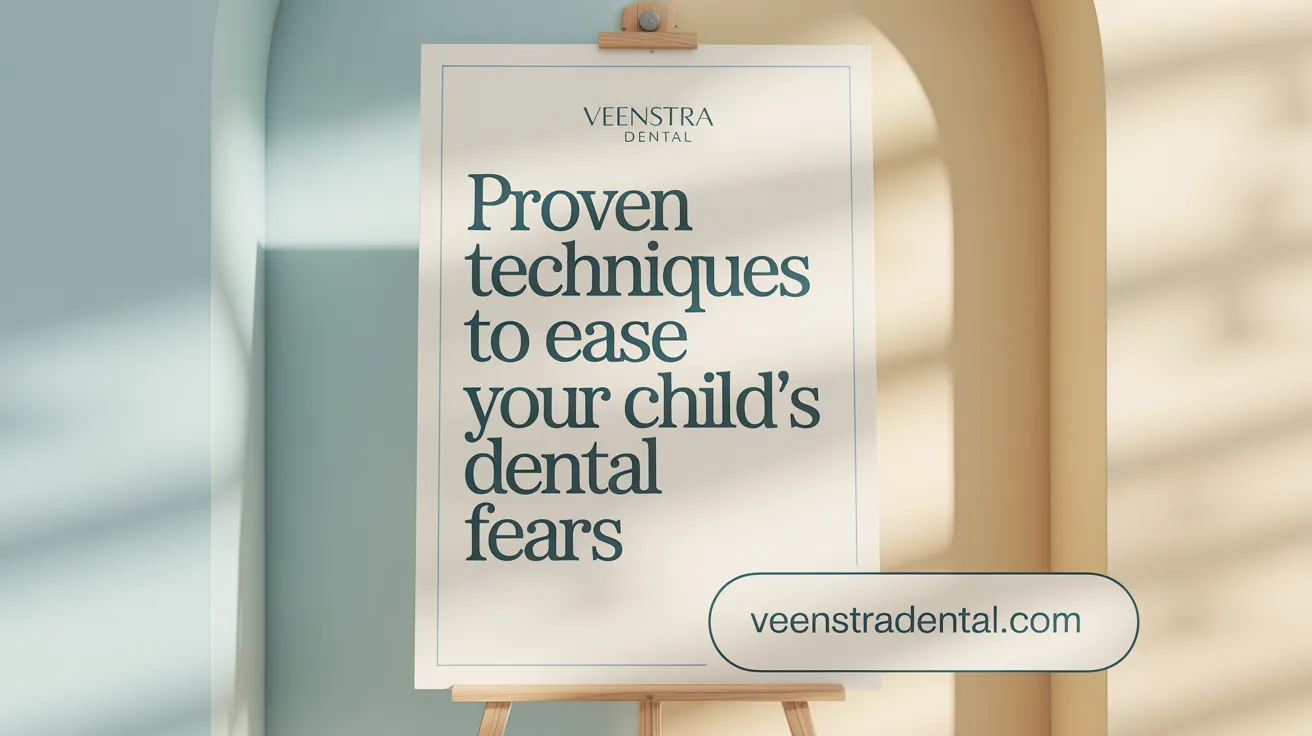Understanding and Overcoming Dental Anxiety in Kids
Dental visits can be a source of fear and anxiety for many children, often stemming from unfamiliar environments, fear of pain, and past negative experiences. However, by understanding these fears and implementing thoughtful strategies, parents and dental professionals can turn dental appointments into fun, comforting experiences that foster lifelong healthy habits. This article explores effective methods to make children's dental visits enjoyable, reduce anxiety, and build positive associations with dental care from an early age.
Starting Early: The Foundation for Fear-Free Dental Visits

Importance of early dental visits
Initiating dental visits early, ideally by age one or when the first tooth erupts, plays a crucial role in shaping a child's attitude toward oral health care. Regular check-ups help children become familiar with the dental setting while they are still young, making future visits less intimidating.
Benefits of introducing dental care by age one
Introducing children to dental care at a young age offers multiple advantages. It allows early detection of dental issues, minimizing discomfort and complexity in treatment later on. Early visits also reinforce that taking care of teeth is normal, helping children view dental appointments as a routine part of health.
Normalization of dental visits through regular check-ups
Consistent visits every six months help normalize dental care from a child's perspective. These regular interactions with friendly dental staff and familiar environments reduce anxiety and foster trust. Children gradually develop positive associations, making dental care a comfortable and stress-free experience.
Recommendations by leading dental organizations
The American Academy of Pediatric Dentistry recommends that children have their first dental appointment by their first birthday or within six months of the appearance of their first tooth. Such early engagement ensures children are introduced positively to dental environments and helps in establishing ongoing oral health practices.
How can positive reinforcement and early dental visits foster a non-threatening dental environment for children?
Early dental visits familiarize children with the dental environment before problems arise, making future appointments feel less threatening and establishing a positive foundation. Pediatric dentists use child-friendly communication and gentle techniques to manage anxiety. Positive reinforcement such as praise and small rewards encourages cooperation, helping children view dental care as a normal part of health maintenance.
Creating a Child-Friendly Environment to Promote Comfort and Reduce Stress

What approaches promote comfort and reduce stress for children at the dentist?
Creating a positive and calming dental experience for children involves several thoughtful strategies. One of the most effective methods is designing a welcoming space that feels inviting and non-threatening. Dental clinics tailored for children often feature colorful decorations, playful themes, and engaging visuals, which help children feel more at ease.
Equipped with toys, interactive tools, and child-sized furniture, these offices encourage children to associate the dental environment with fun rather than fear. Allowing children to bring comfort items like their favorite stuffed animals or blankets can also provide a sense of security during visits.
Parental presence is another significant factor. Having a trusted adult nearby during the exam can soothe anxious children, offering reassurance and emotional support.
Distraction techniques are widely used to divert attention from procedures. These include playing soothing music, showing cartoons on ceiling-mounted screens, or using tablets loaded with games and videos. Relaxation exercises, such as deep breathing or visualization techniques, can be introduced beforehand to help children manage nervousness.
Finally, pediatric dentists trained specifically in child-centric communication strategies can significantly ease anxiety. Their approach includes explaining procedures with simple, positive language and engaging with children in a friendly manner, making visits less intimidating and fostering a trusting relationship.
Techniques to Manage and Overcome Dental Fear in Children

What techniques are effective in managing and overcoming dental fear in children?
Handling dental anxiety in children requires a combination of behavioral strategies, relaxation methods, and proper communication. Behavioral techniques like the Tell-Show-Do method and modeling play a significant role. With Tell-Show-Do, the dentist explains and demonstrates procedures simply, then performs them, helping children understand what to expect.
Modeling involves showing children positive behavior—either by demonstrating calm behavior or using dolls and toys to simulate dental visits. Distraction also works well; engaging children with toys, colorful decorations, music, or videos keeps their minds focused on something enjoyable rather than the procedure.
Relaxation techniques such as deep breathing exercises or visualization can help children stay calm. Practicing these at home makes them more effective during visits.
Role-playing dental visits at home, where children pretend to be the dentist or patient, helps them become familiar with the process and reduces fear. This can include using a toothbrush as a dental tool or acting out a check-up, making the experience more predictable and less intimidating.
For children with extreme anxiety, more advanced approaches might be needed. Sedation dentistry or other specialized procedures provided by a pediatric dentist trained in managing severe fears can ensure a safe, calm experience.
Building trust and communicating effectively are vital. Explaining procedures in simple, positive language, and informing the child what will happen beforehand helps demystify the experience. Allowing a trusted family member to be present and providing positive reinforcement after visits further supports children in developing a positive attitude towards dental care.
In summary, a combination of behavioral techniques, relaxation strategies, role-playing at home, and tailored communication can significantly ease children’s fears and promote healthy dental habits for life.
Engaging and Preparing Children for Dental Visits Through Communication and Play

How can parents create a positive experience for children during dental visits?
Parents play a crucial role in making dental visits enjoyable for children. Using language that is age-appropriate and positive can significantly influence how children perceive these visits. Descriptive terms such as 'tooth superhero' or 'sparkly smile' turn the experience into something fun and exciting.
Starting early by reading books or watching videos about visiting the dentist helps children understand what to expect. Many stories feature friendly characters going to the dentist, which normalizes the experience and reduces fear.
Role-playing is another effective strategy. Parents can pretend to be the dentist and the child can be the patient, using a toothbrush or toy dental tools. This activity familiarizes children with the process, making actual visits less intimidating.
Explaining dental tools and procedures in a non-threatening manner is also important. Showing children the instruments and describing their functions in simple, positive words help demystify the process. For instance, calling a dental drill a 'tooth checker' and emphasizing that it helps keep their teeth healthy.
What storytelling, books, and videos can help prepare children for dental visits?
There are numerous children’s books and videos that depict dentist visits positively. These materials often feature friendly characters and fun storylines that promote dental health. Using these resources before a visit can build excitement and familiarity.
How does role-playing at home assist in reducing dental anxiety?
Role-playing at home allows children to practice the dentist visit in a safe, fun environment. By acting out the roles, children gain a sense of control and understanding, which alleviates fear of the unknown.
Why is explaining dental tools in a friendly way helpful?
Children tend to fear unfamiliar objects. When parents and dentists introduce dental tools with gentle explanations, it reduces their perception of threat. This approach contributes to more cooperative behavior during actual dental procedures.
| Strategy | Description | Impact |
|---|---|---|
| Using positive language | Describing procedures with fun words like 'checking out teeth' | Decreases fear and builds positive attitude |
| Storytelling and media | Books and videos featuring friendly dental visits | Normalizes the experience; reduces anxiety |
| Home role-playing | Practice using toothbrushes and pretend tools | Enhances familiarity; boosts confidence |
| Explaining tools positively | Introducing dental instruments with gentle language | Demystifies and reduces fear |
Building trust and familiarity through these methods can transform dental visits from frightening experiences into normal, even enjoyable, parts of childhood. Effective communication, play, and positive reinforcement help children develop confidence and foster a lifetime of good oral health habits.
Positive Reinforcement and Support: Building Brave Dental Patients

What tips can help reduce fear and anxiety during dental visits for children?
To help children feel at ease during dental visits, several strategies can be effective. Starting dental care early, ideally by age one or when the first tooth appears, helps children become accustomed to the environment and normalizes dental visits.
Using distraction techniques such as bringing their favorite toy, playing soothing music, or explaining each step of the procedure can significantly reduce anxiety. Creating a welcoming, colorful, and playful environment with toys and engaging decor makes the dental office less intimidating.
Positive reinforcement plays a vital role. Praising children for their bravery, giving stickers, small toys, or other rewards after treatment encourages positive behavior and helps build confidence. Role-playing dental visits at home using a toothbrush or dolls can also prepare children and make them feel more in control.
A calm, encouraging attitude from parents and honest, simple explanations about the procedures help children feel secure. Furthermore, open communication between the dental team, parents, and children tailors the experience to their needs, reducing fears.
Choosing a pediatric dentist who uses child-friendly equipment and has a playful, colorful office environment greatly enhances comfort. For children with extreme anxiety, sedation options could be discussed with their dentist to ensure a stress-free visit.
Overall, combining early exposure, distraction, positive reinforcement, and supportive communication creates a foundation for children to develop positive attitudes toward dental care, making future visits less stressful.
Fostering Lifelong Positive Dental Experiences
Transforming children's dental visits into fun, fear-free experiences requires a combination of early exposure, child-friendly environments, effective communication, and consistent positive reinforcement. By starting dental care early, parents and dental professionals can build familiarity and trust, while playful preparation techniques and supportive attitudes help manage anxiety. Pediatric dentists equipped with specialized training and engaging office settings create comfortable spaces that encourage cooperative behavior. Together, these approaches not only reduce fear but establish healthy habits that last a lifetime, making dental visits an enjoyable part of children's overall wellness journey.
References
- 7 Things You Can Do To Calm Your Kids At the Dentist
- Helping Your Child Overcome Dental Fear
- How to Help Your Child Overcome the Fear of Visiting ...
- Eliminating Fear of Your Child's First Dental Visit
- Helping Kids Tackle their Fear of the Dentist
- Overcoming Dental Fear in Kids
- Managing Dental Anxiety in Children: Strategies for Easing ...
